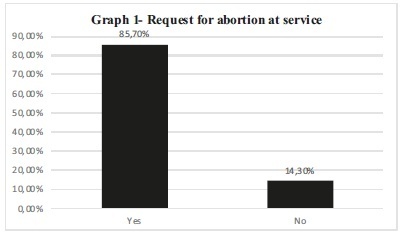Summary
Revista Brasileira de Ginecologia e Obstetrícia. 2023;45(9):524-534
To assess the knowledge, attitude, and practice of Brazilian physicians about immediate postpartum and postabortion intrauterine device insertion.
Cross-sectional online survey involving physicians on duty in public Brazilian hospitals. Participants answered an anonymous questionnaire with close-ended questions to assess their knowledge, attitude, and experience on the immediate postpartum and postabortion insertion of copper intrauterine devices.
One hundred twenty-seven physicians working in 23 hospitals in the 5 geographic regions of Brazil completed the questionnaire. Most were female (68.5%) and worked in teaching hospitals (95.3%). The mean (standard deviation) knowledge score (0–10 scale) was 5.3 (1.3); only 27.6% of the participants had overall scores ≥7.0. Most physicians (73.2%) would insert a postpartum intrauterine device in themselves/family members. About 42% of respondents stated that they had not received any training on postpartum or postabortion intrauterine device insertion. In the past 12 months, 19.7%, 22.8%, and 53.5% of respondents stated they had not inserted any intrauterine device during a cesarean section, immediately after a vaginal delivery, or after an abortion, respectively.
Most study participants have a positive attitude toward the insertion of intrauterine devices in the immediate postpartum period, but they have limited knowledge about the use of this contraceptive method. A large percentage of respondents did not have previous training on postpartum and postabortion intrauterine device insertion and had not performed any such insertions in the last 12 months. Strategies are needed to improve the knowledge, training, and experience of Brazilian physicians on immediate postpartum and postabortion intrauterine device insertion.
Summary
Revista Brasileira de Ginecologia e Obstetrícia. 2020;42(11):746-751
The aim of this study was to verify the existence of conscientious objection to comprehensive health care for the victim of sexual violence, as well as to understand the service structure of institutions authorized in the health care system for victims of sexual violence in the state of Minas Gerais.
This is a quantitative, cross-sectional, descriptive, and analytical field study aiming to collect data from institutions authorized to assist victims of sexual violence in the state. The instrument was handed in to the coordinators of these services.
It was found that 11% have no physician in service and that 31% had no training for this type of care. It was revealed that 85% of these institutions have already encountered patients wishing to have a legal abortion, but 83% of them have not had their request granted. There was a 60% presence of conscientious objection by the entire medical team, the main reason being religious (57%).
The assistance system is not prepared for comprehensive care for victims of sexual violence, especially in terms of legal abortions, with conscientious objection being the main obstacle. A functional referral and counter-referral system is needed to alleviate such a serious and evident problem. It is hoped that the research results will promote dialogues in the state that favor appropriate actions on legal abortion, and respect the medical professional, in case of conscientious objection.
